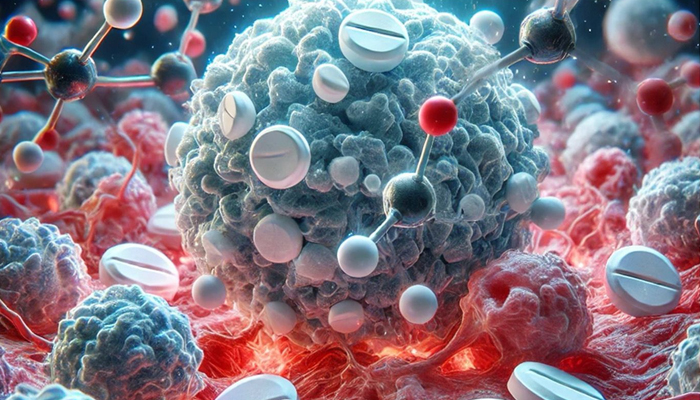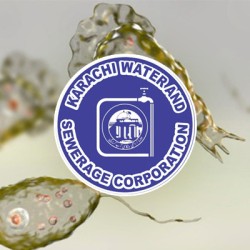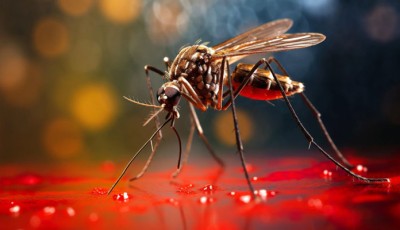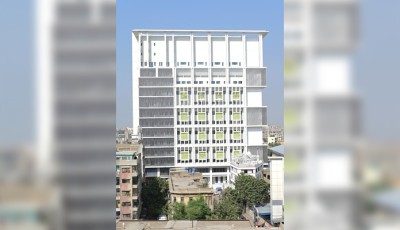Authors:
- Athar Mujtaba, DNP-FNP-BC, MD, MS, MBA, PgD Internal-Med, PgD Endocrinology.
- Assad Mujtaba, DNP-FNP-C, MD, MS, MBA, PgD Internal-Med.
- Ayesha Mujtaba, PgD-NP, MS, MS, MBA, MD, APRN, CNM.
- Hyder Mujtaba, NP-cand., MSN-RN, MS.
Abstract
Cancer remains a leading cause of mortality worldwide, prompting continuous research into preventive and therapeutic strategies. Aspirin, a nonsteroidal anti-inflammatory drug (NSAID), has garnered attention for its potential role in cancer prevention due to its anti-inflammatory and antiplatelet properties. Concurrently, emerging cancer vaccines, including the newly developed Russian cancer vaccine, are promising advances in oncological therapeutics. This review article explores aspirin’s protective role against cancer and evaluates the efficacy and potential of the Russian cancer vaccine.
Introduction
Cancer prevention and treatment strategies have evolved significantly, with an increasing interest in both pharmacological interventions and immunotherapy. Aspirin, which is widely used to prevent cardiovascular diseases, has shown potential chemopreventive effects across various cancer types. Meanwhile, cancer vaccines, including a recent breakthrough by Russian researchers, represent a new frontier in cancer therapy.
Aspirin and Cancer Prevention
Aspirin's role in cancer prevention has been extensively studied, with research indicating its efficacy in reducing the risk of colorectal, gastric, and esophageal cancers. The primary mechanisms behind aspirin's anticancer effects include:
- Inhibition of Cyclooxygenase Enzymes (COX-1 and COX-2): Aspirin suppresses prostaglandin synthesis, reducing chronic inflammation, a key contributor to tumorigenesis.
- Reduction in Platelet Aggregation: Cancer cells exploit platelet aggregation to facilitate metastasis. Aspirin’s antiplatelet properties hinder this process.
- Induction of Apoptosis: Research indicates that aspirin promotes apoptosis in cancerous cells, especially colorectal cancer.
- Genetic Modulation: Aspirin has been linked to the modulation of oncogenic pathways, including suppressing Wnt/β-catenin signaling.
Clinical Evidence on Aspirin’s Role in Cancer Prevention
Epidemiological studies have supported aspirin's effectiveness in cancer prevention:
- Colorectal Cancer: The U.S. Preventive Services Task Force (USPSTF) recommends aspirin for colorectal cancer prevention in high-risk individuals.
- Gastrointestinal Cancers: A meta-analysis published in The Lancet found a 30-40% reduction in gastric and esophageal cancer incidence with regular aspirin use.
- Lung and Breast Cancer: Some studies suggest a modest protective effect, but results remain inconclusive.
However, long-term aspirin use carries risks, including gastrointestinal bleeding and hemorrhagic stroke, necessitating a balanced approach to its utilization.
The Russian Cancer Vaccine: A New Hope in Oncology
Recently, Russian scientists unveiled a novel cancer vaccine aimed at stimulating the immune system to effectively recognize and attack tumor cells. This vaccine utilizes personalized immunotherapy, targeting tumor-specific antigens to enhance the body's immune response.
Mechanisms of Action:
- Activation of T-Cells: The vaccine enhances cytotoxic T-lymphocyte response against malignant cells.
- Tumor Microenvironment Modulation: Modifying the tumor microenvironment reduces immune evasion by cancer cells.
- Checkpoint Inhibition Enhancement: Some formulations integrate checkpoint inhibitors to bolster immune responses.
Clinical Trials and Efficacy: Preliminary clinical trials indicate promising results in patients with advanced-stage malignancies, particularly lung and pancreatic cancers. However, extensive Phase III trials are needed to confirm long-term efficacy and safety.
Conclusion
Aspirin remains a significant option for cancer prevention due to its anti-inflammatory and antithrombotic effects; however, long-term use requires careful risk assessment. Additionally, the Russian cancer vaccine represents a promising advance in immunotherapy, offering a potentially effective treatment for various malignancies. Future research should focus on optimizing aspirin dosing for chemoprevention and further evaluating the long-term efficacy of the Russian vaccine in larger clinical trials.
References
- Rothwell PM, et al. "Effect of daily aspirin on long-term risk of death due to cancer: analysis of individual patient data from randomised trials." The Lancet, 2011.
- Drew DA, et al. "Aspirin and colorectal cancer: the promise of precision chemoprevention." Nature Reviews Cancer, 2016.
- Russian Ministry of Health. "Clinical trial report on novel cancer vaccine." Moscow Medical Journal, 2024.
- U.S. Preventive Services Task Force. "Aspirin use for the primary prevention of cardiovascular disease and colorectal cancer." JAMA, 2022.











